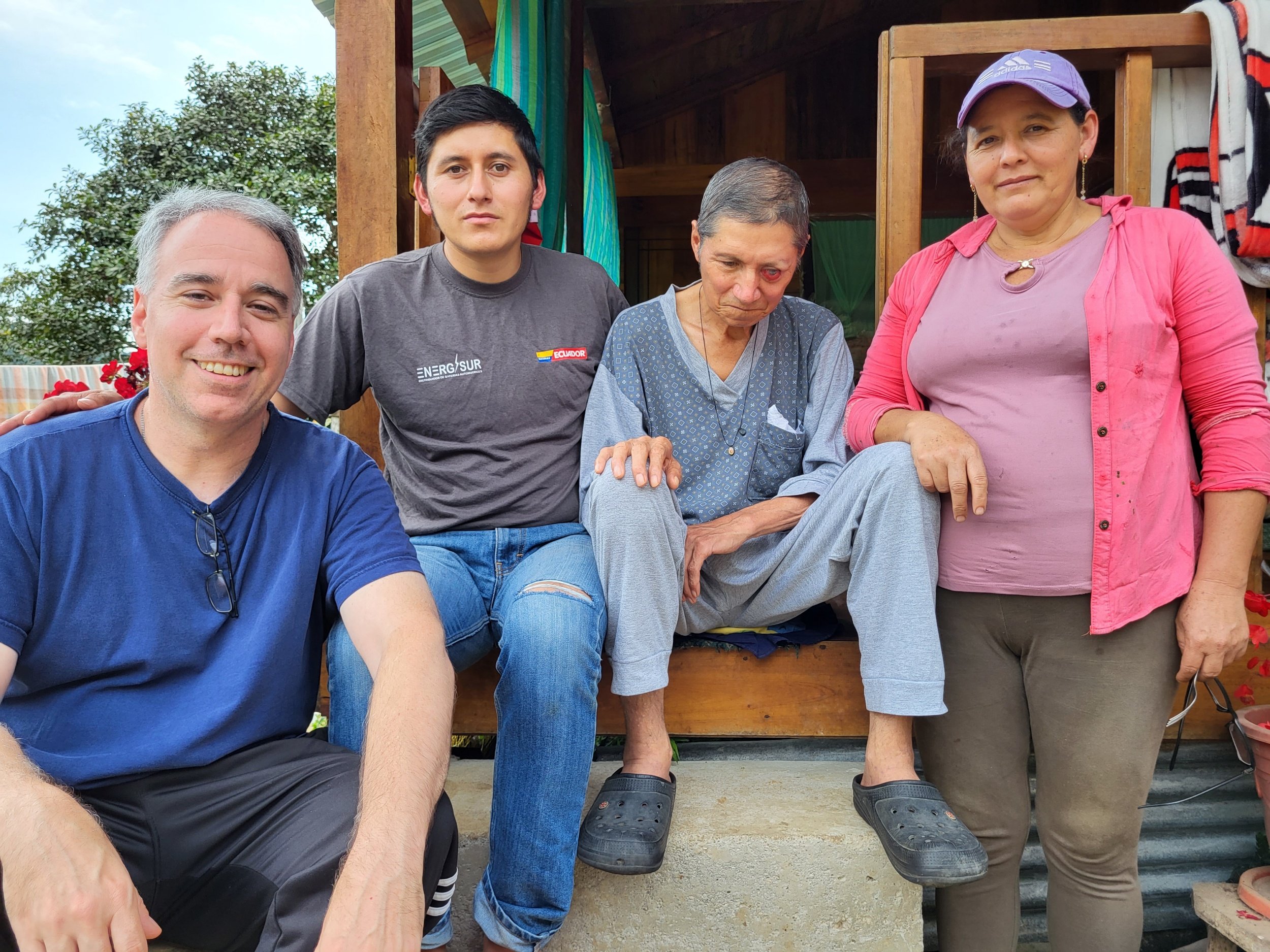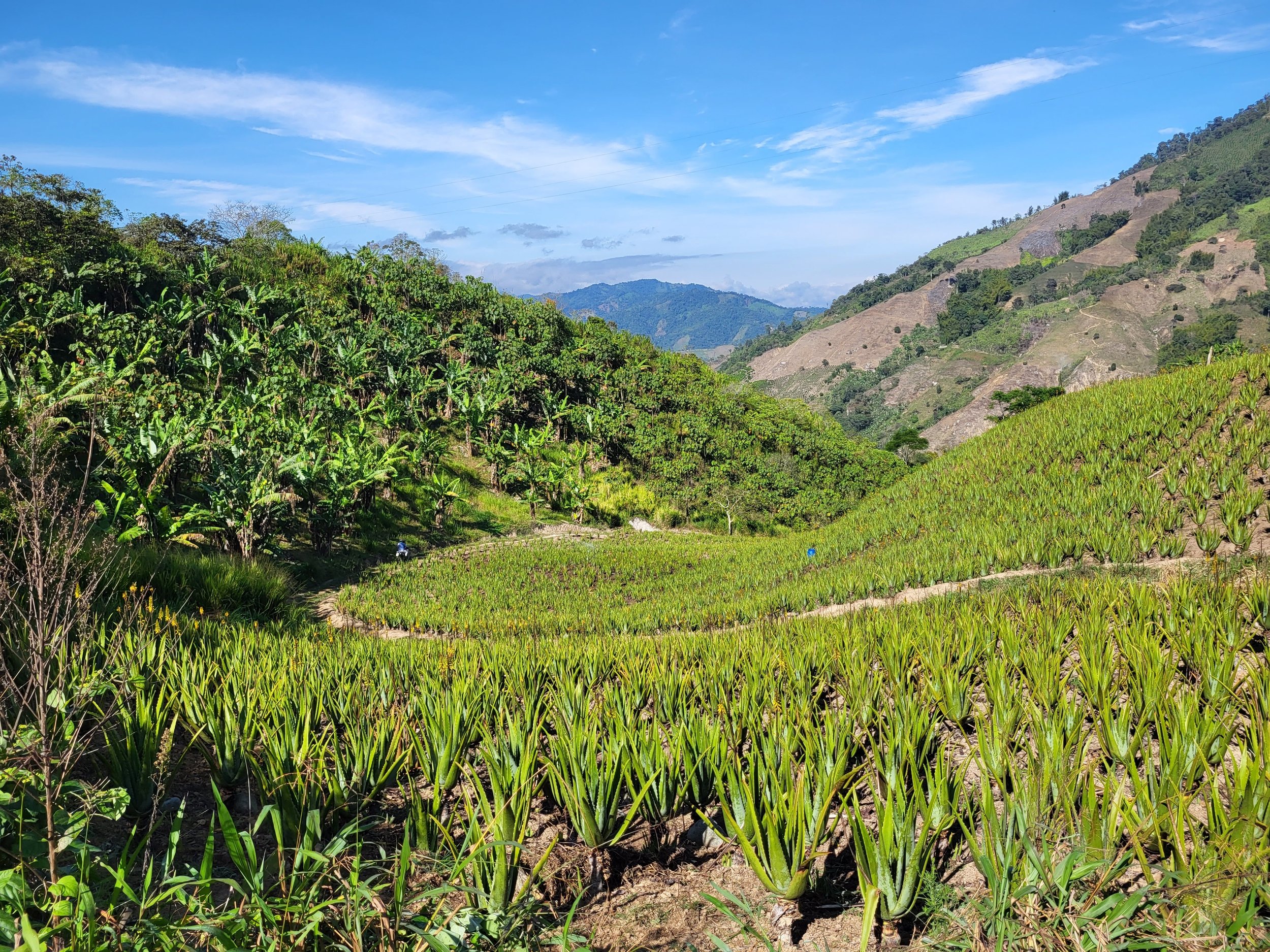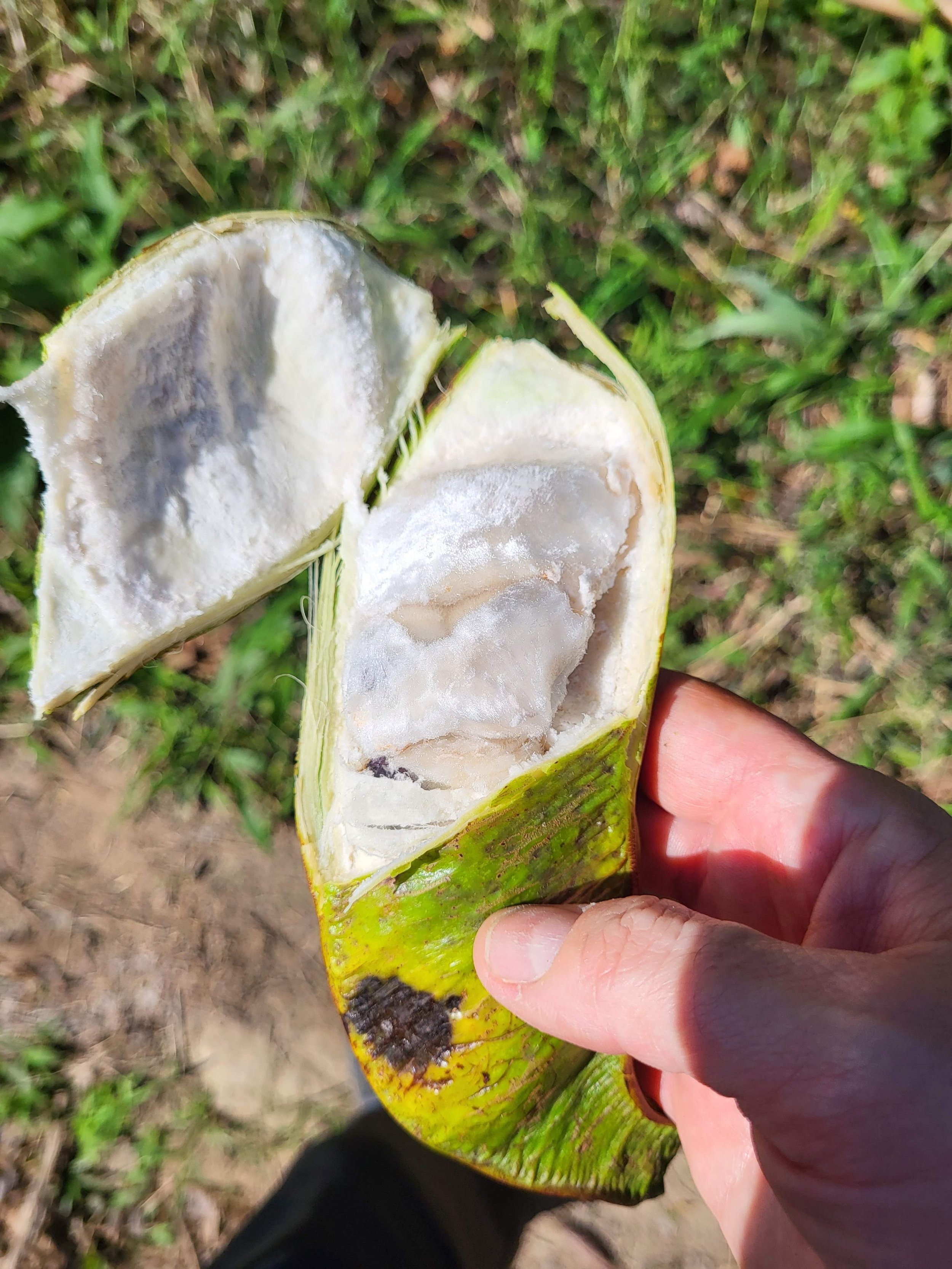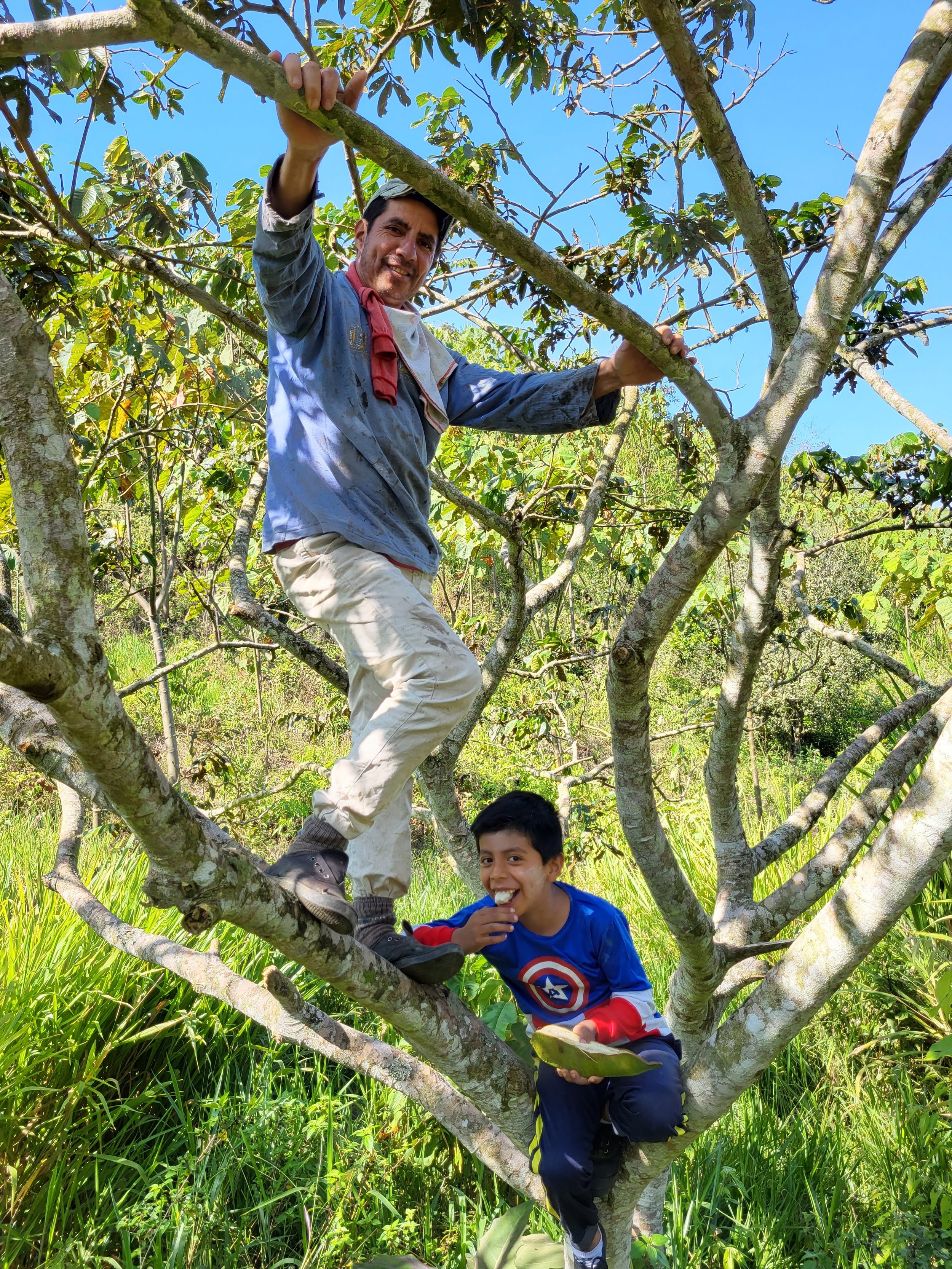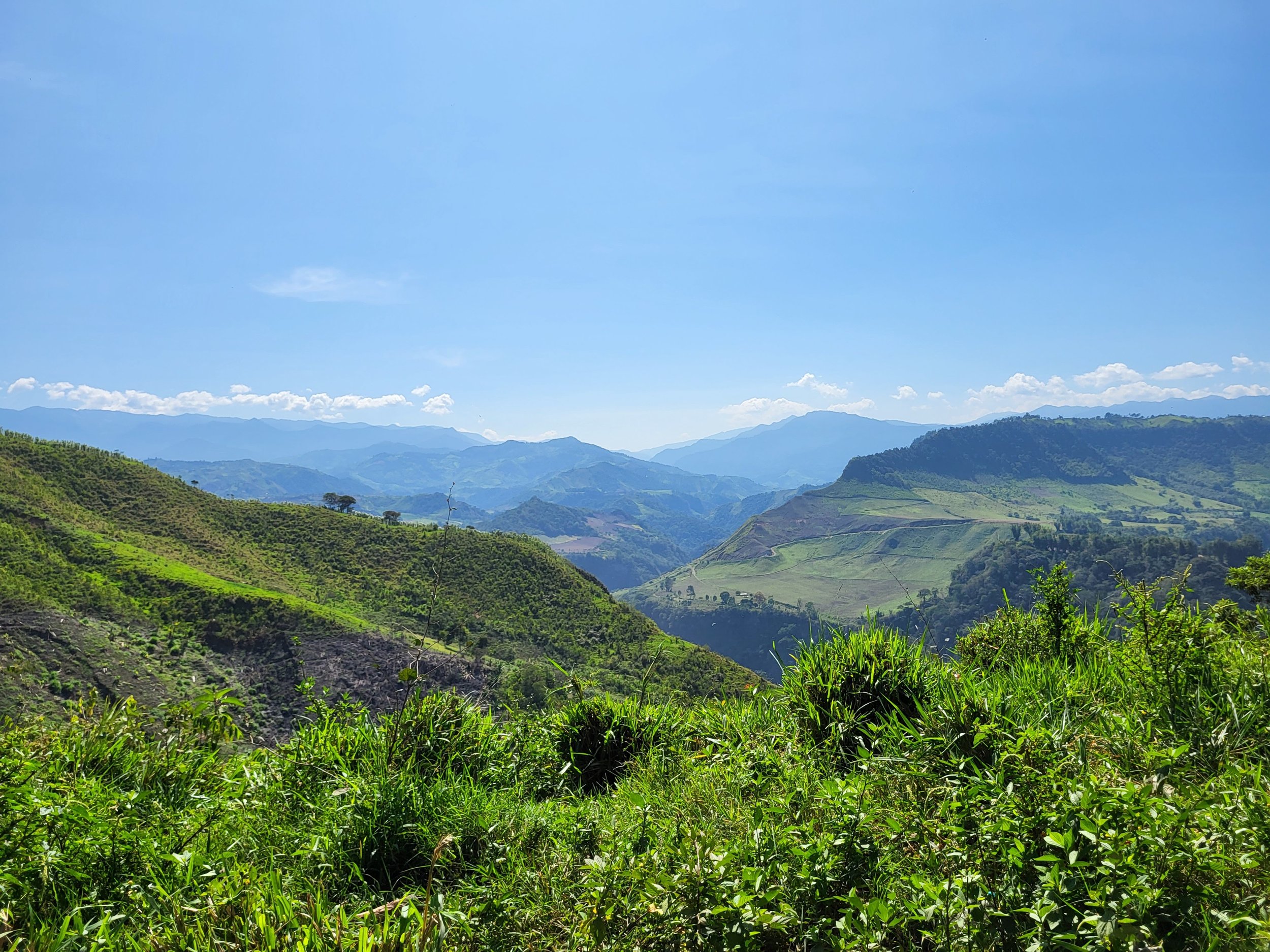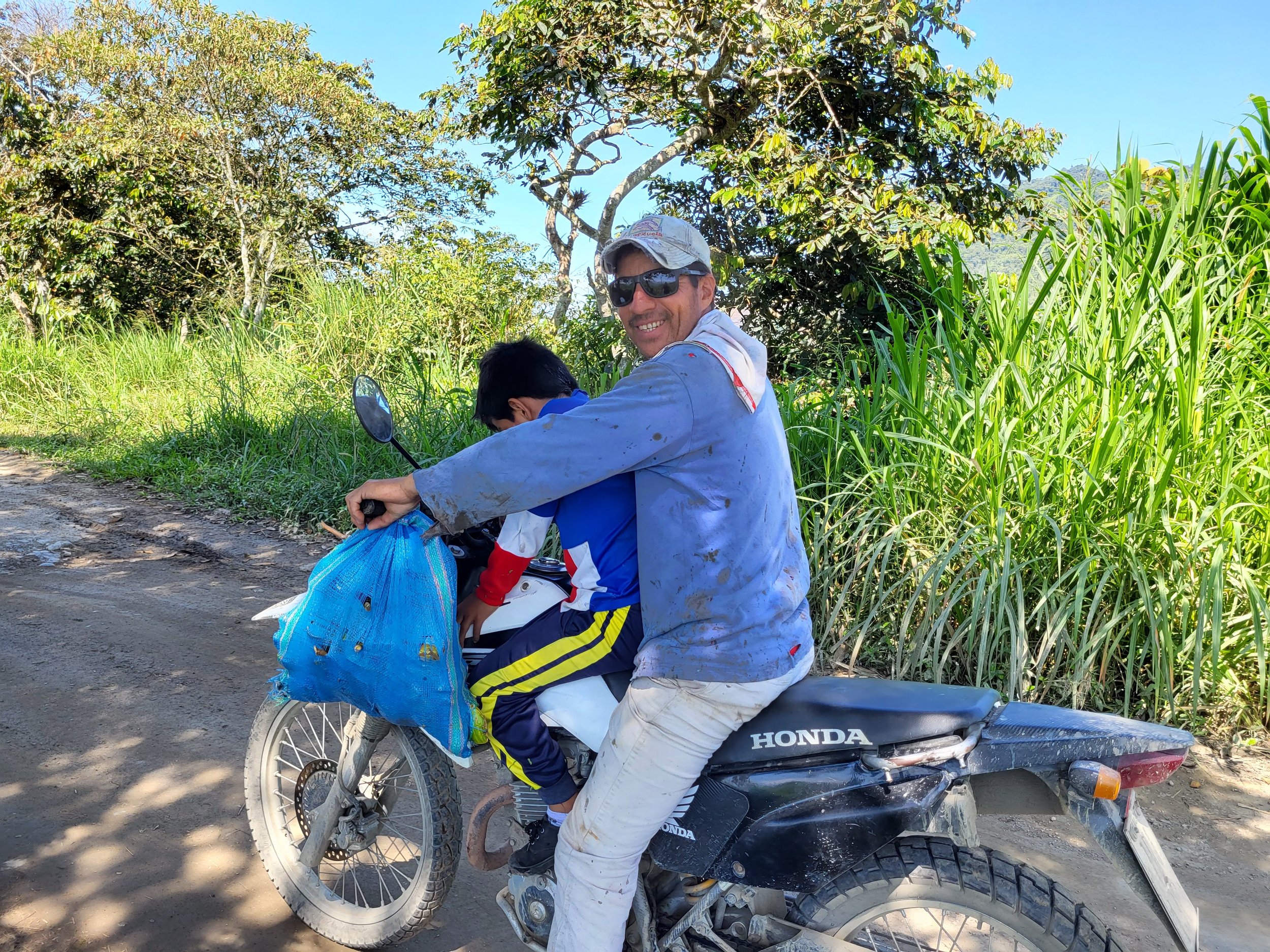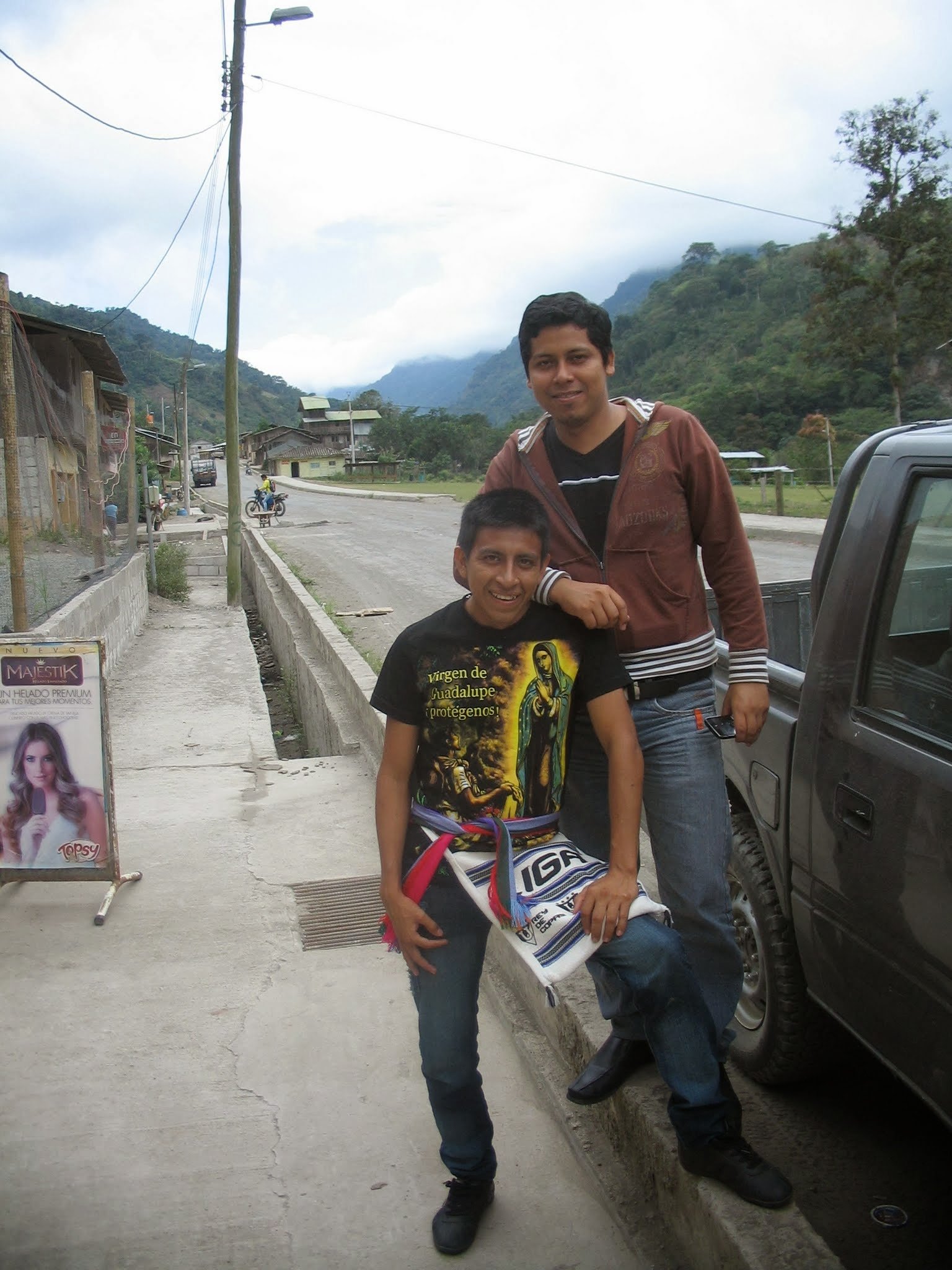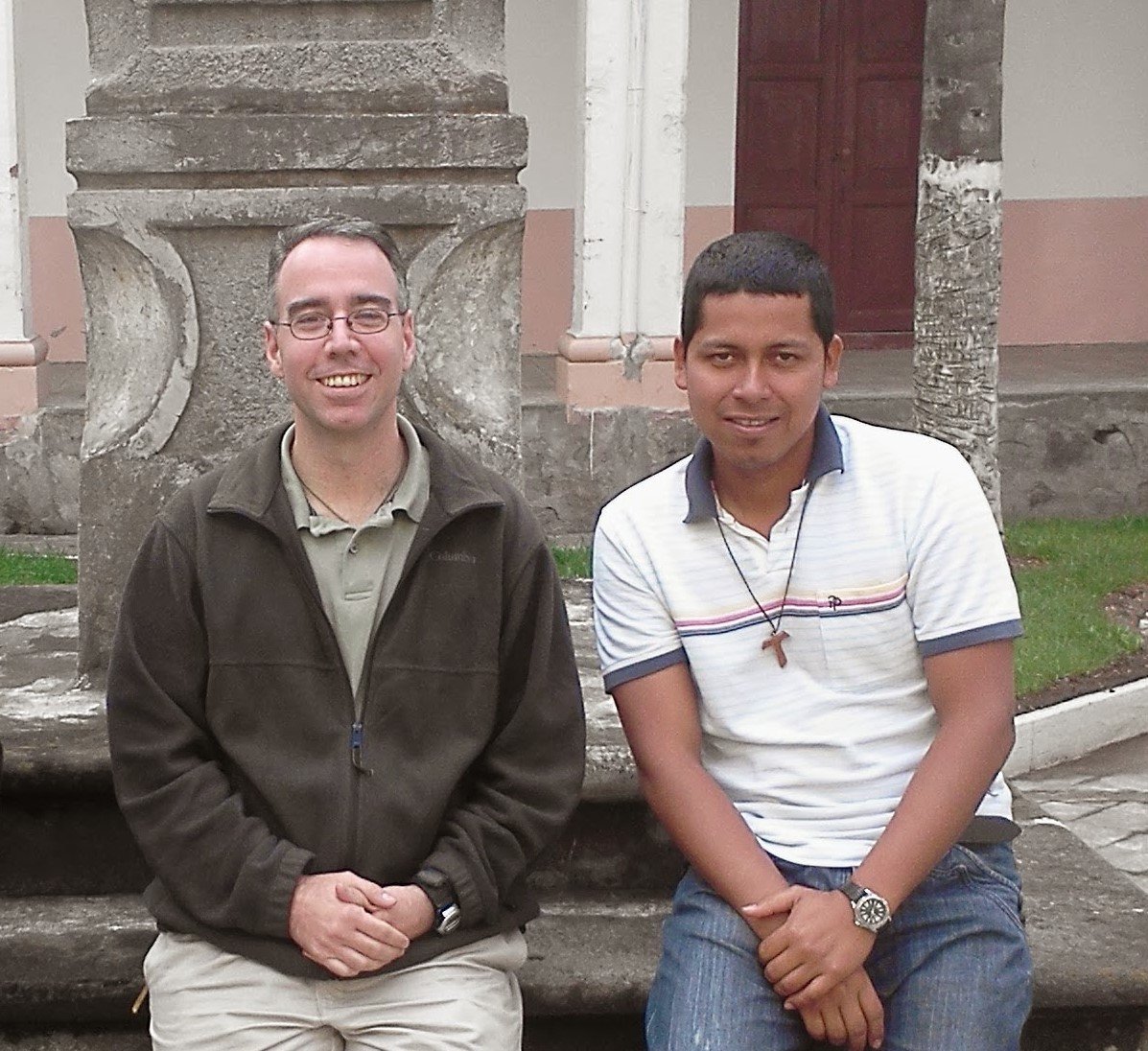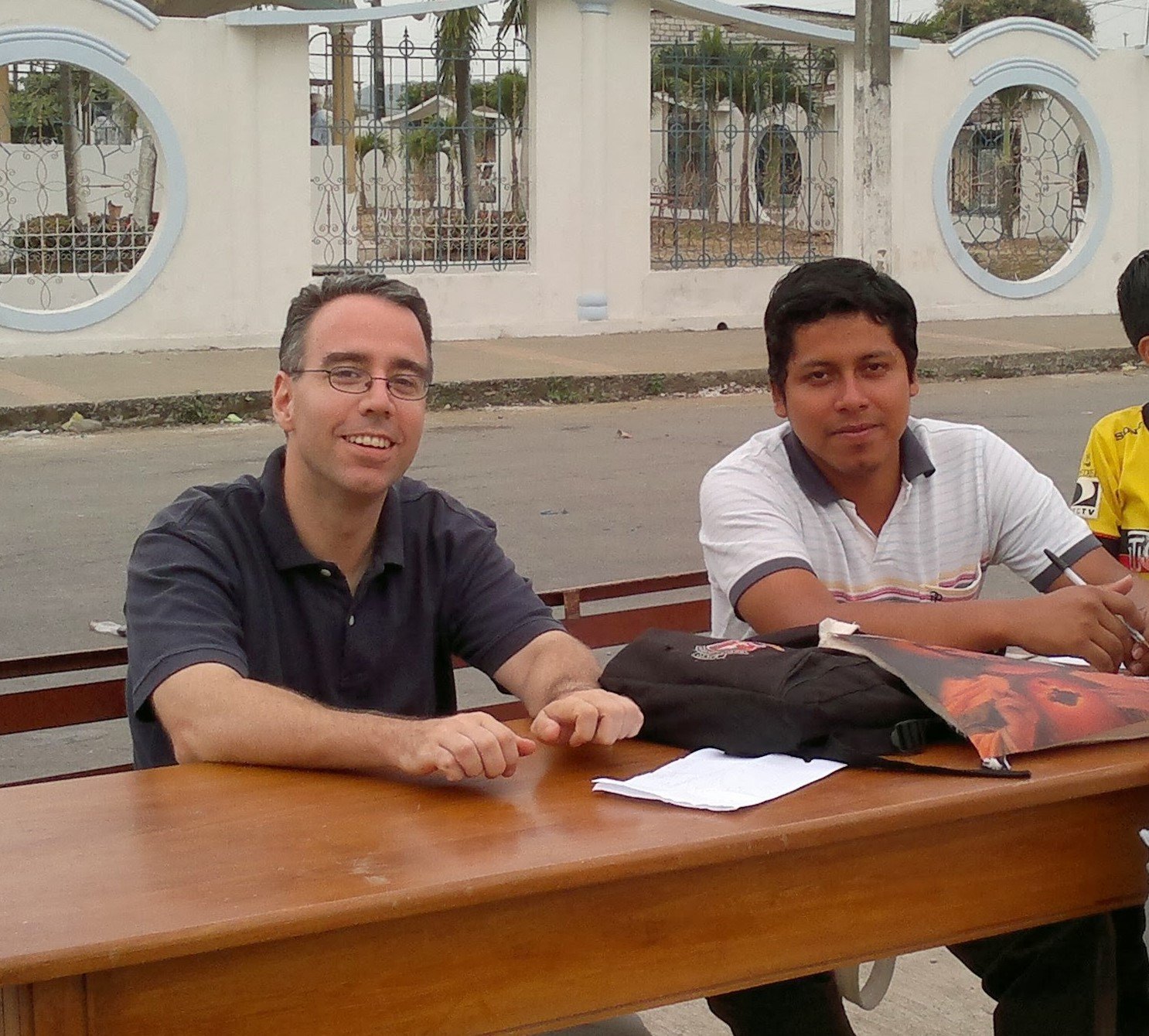Hello again everyone,
Here's the latest update from Ecuador - I hope you enjoy it.
Current Events in Ecuador
Ecuador continues in the similar economic problems it's had over the last 5 years, and it seems to have similar instability problems as other smaller countries here in South America. But there are two trends that are on people's minds: a rise in organized and petty crime, and migration.
Starting a few years ago, the Ecuadorian government began cracking down on the country's drug-trafficking organizations, which mainly operate through the coastal provinces of Guayas (including Guayaquil, one Ecuador's two large cities of 2 million people), Manabí, Santo Domingo, and Esmeraldas, though other provinces near the Peruvian and Colombian borders are also connected. The government aimed for the heads of these organizations, and the cartels have responded with violence directed at intra-cartel struggles and toward the police, military, and even civil society. Last year and this year, there were wide-spread outbreaks of violence in prisons, and I hear time after time that the coastal cities have become much more dangerous. At the beginning of November, a rash of seemingly coordinated violence broke through coastal provinces over several days (the holidays of the Day of the Dead), including bombings of police and military, as well as civilian locations. No one is really sure where this is going to go, so there is fear throughout about the future.
The second area of concern is economic. Tourism is certainly down since the pandemic, and people in the industry believe that is due to the news about crime: tourists hear about the crime and avoid Ecuador. But I don't believe that's the reason. I never heard about Ecuador's rise in crime violence while in the US this year, unless I went looking on the Ecuador news sites. Also, the US State Department still recommends travel to Ecuador at Level 2 out of 4 (1 being normal precautions, and four being don't travel), which is the same level as many other competing tourist destinations in the Caribbean and Latin America, like Costa Rica. It seems that tourism is just one of the many industries hit hard by the economic fallout after the pandemic. Having used a lot of cabs in Quito while working on my visa, the constant refrain from the drivers was how bad the economy has become since the pandemic. I was in two different cabs on consecutive days in Quito last month, and both of the cab drivers talked about their plans to find a way to migrate to the US. It's more than I've ever experienced in my ten active years here.
I've always felt, as mentioned by Pope Francis, that the effects of the pandemic could be very good or very bad, depending on what we do with the transition time. On the purely material level, transition times are always to the advantage of the stronger, the more capable. It's like if you take a bag of rocks of different sizes, all mixed up, and shake it for a while. You'll see a gradation of rocks start to emerge because of the size of the rocks and the effects of gravity and surface friction. This happens socially as well: the mountains become higher and the valleys lower. Unless …there is love, which is another force in the equation.
Transitions are opportunities for the re-birth of love in society. A movement stepping away from life as we've know it to return to our origins and the presence of Love that resides there - which could be called 'repentance' - frees people for honest and balanced self-reflection, and gives the ability to freely reconcile with God and others, and to live in love. This re-birth of Love becomes another social force in the equation. It has the strength to manage the downward force of gravity, and to take advantage of the chaotic movement during the shakeups of transitions to re-order society in a more equitable way, for common good of all.
It's a long-winded expression of my outlook behind my efforts in general in life, but most especially in the pandemic: the re-birth of Love. The Pandemic workshop and all my continued efforts in Barriers to Bridges, have had this in mind. We either take advantage of the opportunity and leave life behind for a bit to return to origins, to reconcile and self-reflect, and to come out re-born in some way in love; or society will become much worse than before the pandemic. And unfortunately, I have to say in Ecuador (and in the US), I've seen primarily the effects of latter condition. The worsening current events in Ecuador that you've just read are not the sad fruits of the imagined failures of some far-off, poor, developing Latin American country. They are the tangible, aggregate fruits of what you and me and everyone in the world have done during the pandemic.
More about Mission in Ecuador
And so all that being said, the overall vision hasn't changed, and is focused on collaborating with grace in growing new ministries and projects out of accompaniment in situations "outside the ballpark", or at the bottom of "valley". They are "new shoots from the roots" of the faith and social institutions that already exist. As mentioned above, there's an inherent call to conversion and reconciliation, a return to origins for encounter and rebirth, and that takes listening first of all.
I've moved to Mindo for my last 2+ months here before coming back to Boston on January 11. Having first come here in 2013, I already have lots of time here listening and noticing, and that's why I've come here. But I'm going deeper with that these days, while having a lot more resources at my disposal here than Chontal to move more quickly. My goal is to see what sprouts, by doing some general analysis and reflecting and trying some small scale piloting. It's like if you were looking for some material to use to start your campfires, or somewhere to plant seeds. You'd first try out some small samples before investing. I'm going full speed ahead on this now.
I still hope to visit the Franciscan sisters in Puerto Quito and possibly Pd Julian in Mocache. Because the visa process has caused me to have to stay around Quito, the other activities I thought of as possibilities will have to wait for another space of time.
Visa
Good news so far: my master's degree was accepted for registration in Ecuador. It's a one-time registration for life, so you can call me Inginiero, as they say here. That's all I need for the next steps in the visa process, and I went to the agent at the bishop's conference with my documents. I then had to get my bank statements notarized, which took all of a morning in Quito. The last piece is to set up an appointment for the visa, and also get a printout of my historical comings and goings from Ecuador, which takes a few hours in Quito. But the agent is also looking into whether I need a translation of my degree, which I don't think I need. I should hear shortly about those next steps, but the process looks positive so far. (Since I have the documents already prepared from the States, and it's only $25, I'm also in the process of registering my bachelor's degree in Ecuador.)
With this visa, I should be able to work remotely, as well as have work in Ecuador, though I would have to take additional steps to work in Ecuador, like get an Ecuadorian ID called a cedula. There's also a question about taxes when working remotely (i.e., for a job in the States while staying in Ecuador), and I've done preliminary research on that.
I'll be able to come and go from Ecuador without constraints over the 2 years of the visa. That will help a lot with airfare expenses, as I won't need to constantly buy return flights to the States within a narrow timeframe, and need to reschedule them afterwards at high costs.
My current tourist visa expired on October 16, so I had to go and get an extension for $142. In the process, I learned some important details about how tourist visas work, that I didn't know before (and hardly anyone knows at all, from my research). Effectively, the date of your first visit to Ecuador as a tourist (since this current system was put into place in 2015 or so) sets your annual migration cycle forever (or until the migration system gets revamped again!). You have 90 days free in each annual cycle to use as a tourist. You can get an extension on those 90 days for the cost I paid, but that takes you to either (a) 90 days out, or (b) the end of your annual cycle, or (c) your next departure from the country, whichever of those three comes first. So, I didn't know it, but my cycle was set when I arrived in 2017 on October 31 on a tourist visa, (after years of previous arrivals under residential visas). So, having arrived this time on July 19, my first 90 days ran out on October 16, just 14 days short of my next cycle. Meaning that the extension I bought for $142 got me only an extra 13 days in Ecuador! And, since October 31st, I'm been using up the first days of my next 90-day tourist cycle.
Now, it hasn't put me in a bind, except that, if I had known about these cycles and when my cycle was determined, I would have planned differently and arrived in Ecuador 2 weeks later, so that my 90 days would end just when the next cycle began, and I'd get another 90 days free (and save the $142 for the extension). But, no one, either in internet research or speaking in person (including the agent in the bishop's conference), could clarify this for me until I went through the process and talked to the agent in migration. What's missing in it all is a source from Ecuadorian migration - say, their website or Facebook page - that clarifies this.
Happenings in Chontal
As I mentioned in previous posts, I'm not included in any activities in the church in Chontal (although I'm invited to share a reflection at the Mass, it seems more like something that would be awkward for the priest to cancel now). I'd need to carve out a space for communion, which actually isn't a problem or a bad thing - and part of what I could see was needed years ago.
The Synodal Way that Pope Francis is promoting is a form of creating spaces for authentic communion. This Synodal form described reflects much of my own pastoral way and spirituality (though I think this formal presentation of it generally lacks a "living with" as a foundation). Not surprisingly to me, the local priest has admitted that neither he, nor the other priests of the diocese, nor even the bishop understand the Synodal Way. Although each diocese is supposed to be creating spaces for listening to laity, it doesn't seem like anything in this regard has been done at all in this diocese. Nothing has been mentioned, nothing planned, and nothing done.
Again, this isn't surprising to me. Not just in my own experience in Chontal, but in, for example, a zonal catechist meeting I attended in 2018. I remember the entire meeting was priests and nuns giving lectures to the lay catechists. There was no dialogue - just a top down "listen to the Fathers and the Mothers". It then wasn't surprising that, once an opportunity cracked open, complaints started to grow out of the catechists about how the parents and children in their classes don't obey them. It turned into a venting session. In the middle of complaints about the kids and parents, I offered one thought: in my own experience, listening to the kids and parents gained their trust to listen to me. It went over like lead balloon. I've never gone back to one of those meetings.
This quote from Pope Francis in 2016 aptly describes the situation not just in Chontal's zone, but probably in much of all of Latin America:
“The other danger, a very strong temptation I have spoken about several times, is clericalism. And this is very strong. Let us consider that today more than 60 per cent of parishes – of dioceses I don’t know, but marginally fewer – do not have a council for economic affairs or a pastoral council. What does this mean? It means that the parish or diocese is led with a clerical spirit, by the priest alone, and that it does not implement the synodality in the parish, in the diocese, which is not a novelty under this Pope. No! It is a matter of canon law: the parish priest is obliged to have a council of, for and with laymen, laywomen and women religious for pastoral ministry and for economic affairs. And they do not do this. This is the danger of clericalism in the Church today. We must go ahead and remove this danger, because the priest is a servant of the community, the bishop is a servant of the community, but he is not the head of a firm. No! This is important. In Latin America, for example, clericalism is very strong and pronounced. Laypeople do not know what to do, if they do not ask the priest. It is very strong. And for this reason an awareness of the role of the laity has been very delayed. It is saved in part only through popular piety, as the protagonist of this is the people, and the people have done things as they come to them, and priests in this regard have not been very interested; some have not seen this phenomenon of popular piety in a positive light. But clericalism is a negative attitude. And it takes complicity: it is something that is done by two parties, just as it takes two to dance the tango. … That is: the priest seeks to clericalize the layman, the laywoman, the man or woman religious, and the layperson asks to be clericalized, because it is easier that way. And this is curious. In Buenos Aires, I had this experience three or four times: a good priest came to me and said, “I have a very good layperson in my parish: he does this and that, he knows how to organize things, he gets things done. … Shall we make him a deacon?” Or rather: shall we “clericalize” him? “No! Let him remain a layperson. Don’t make him a deacon”. This is important. It often happens to you that clericalism obstructs the correct development of something.”
The priests here in this zone have expressed at times that they don't understand me, not in the language sense, but in the spirituality sense. It came to something of a head in the Mass on World Mission Sunday, October 23, where the priest made no mention of me at all. It wasn't just an insult that also causes confusion in the way the people of Chontal see me, it's that he just doesn't understand. I'm always willing to gather, to talk, to plan, but the invite never comes. It's sad, but neither did many understand the mission of Jesus in Judea and Galilee.
I write all this not to accuse, but to paint a true and balanced picture. The last sentence of Pope Francis’ quote above is “It often happens to you that clericalism obstructs the correct development of something.” Now, I have my own faults, and have to be put up with by others, and each person is where they are at. I love to be with people in general, even the clergy that I'm writing about here. I think there exists - and I think I find - the good in each person. It's a gift I've been given when leaving behind life and following Christ. People have told me that I put up with too much in certain circumstances, but that's something that only came to me after experiencing my own profound forgiveness in Jesus. But I also need space to do the things I'm called to do, and I want to paint the real picture for readers as to reasons why my path goes as it does, why things do or don't develop in a place. Clericalism certainly obstructs what I do. Much abuse has occurred in the church because very few are willing to be honest about clericalism and clergy (or pastors, ministers, elders, etc.), by treating them first as human beings just like you and me - like equals first and foremost. I'd have more to write sometime on the roots of this problem…
I moved to Mindo on November 1, and will try to visit Chontal every now and then, especially to continue visiting people who are sick or in need, like Guillermo and Maria and Marta. Guillermo has moved to his house up the mountain, and I made a few visits, including one with his brother, where most of his immediate family was present. He seemed to be doing better, though I don't think he has a cure for his cancer.
Franklin Gordillo took me up to his small farm one day, to pick guavas and eat. You may remember Franklin and his wife Mayra (an evangelical Christian who is a wonderful young woman to talk about faith with) and their two daughters, Melani and Carolina. We had helped them out after the landslides back in 2014, and Carolina participated in the brief attempt at penpals that we started about 6 years ago. They also have a son Isak who is about 7 ot 8 now, and I went up with Isak and Franklin on his motorcycle. Guavas are long green pods that contain large black seeds covered with a furry, sweet sheath that is great to eat. They are commonly grown here. Enjoy the photos:
One Friday, I prepared an English class and went up to the small school in Magdalena Alto. There are 18 students in the whole school, and Ximena is the only teacher/director. (The reasons for that are a long story for another time.) Ximena and her immediate family we also helped out after the landslides of 2014. (By the way, I write "immediate" family because almost everyone in Chontal is related in some way or another.) Her and Fernando have two daughters, Katherin and Valentina, and you may remember them from the fundraiser back in 2014.
Although it's a big challenge to teach across 6 grade levels all at once, I put together an active English lesson about the parts of the face, and then some games (like scavenger hunting for candies and English words), and then Ximena and I led some other games. The kids enjoyed, and we did some English. I hope to be able to return for a few Fridays before I leave for the States.
You can watch videos of the games here, too.
Of course, there's time now and then with the kids in Chontal.
I did a game with the kids on the entranceway of the church, and now it seems that almost every day, the kids return there to play, to the chagrin of some of the crusty folks. Whle playing one day, one of the children told me that her grandmother said that the kids shouldn't be playing on the church property. I just mentioned to the girl how Jesus might see it:
“Let the children come to me, and do not prevent them; for the kingdom of heaven belongs to such as these.”
It's actually a good opportunity to take next steps in inviting the children in, which I'd do if I had more a place and some time.
Overall, it's a wonderful theme that I have constantly and consciously presented to the community by my actions, visibly in front of everyone.
The adults could learn a lot from the children.
Mindo
I moved to Mindo on November 1. I'm currently living in a hotel where I know the manager for a number of years. I'm getting a good deal on rent, it's a good place to be for now, and I'm glad to be here for the next two months.
A practical advantage to being in Mindo is the better access to resources here than in Chontal, like better internet, easier access to supplies for creative projects, and access to other places. I may have an opportunity to get online work. I'll also have easier access to make the visits to other areas - and trips to Quito - that I want to make.
The unique demographic of the people, the unique location and climate and biodiversity, and the public and private investment as both a tourist destination and protected nature reserve, all mean there are lots of possibilities for intercultural/language bridging activities, and spiritual retreats and experiences close to nature. I'm in the process of looking and listening to see what God might be wanting to grow and form in the areas that I feel called to: a pastoral closeness to local people and tourists alike, and cultural exchange and spiritual workshops. Currently to start, I'm honing my understanding the demographic ranges of people here, as there are so many life situations, backgrounds, and motives for folks who are here.
There are a number of folks who I've known here for a fairly long time. People in some of the businesses and hotels, musicians in the streets. Also, people in the church and the spiritual retreat center in town, as well as my friend Antonio, who lives part of the year in Mindo. I'm certainly not alone, but I also don't want to get distracted, which is easy to do here.
What I offer is going to be unique and a bit different from what folks are accustomed to, and I expect will be challenging for some people to accept. So, getting things growing and establishing will be a process, with some necessary boundaries and definition that may be a little different from how folks have known me before - as basically just a listener. So, I don't want to get distracted.
Quito
I hope to make a visit to the Capuchins in Quito sometime in November or early December.
My last visit for my other degree registration is Monday Nov 14. I still have a few more visits for getting the visa.
A LOSS IN ECUADOR
I got some sudden and sad news a few weeks ago, that a friend here in Ecuador had died. Only 33 years old, I had met him back in 2012 and we had stayed in touch. He was an English teacher and was one of the first Ecuadorian friends I had here, very active and popular and well-liked in the church and school and local community. I don't know what he died from, and where his family lives is a bit far (and now dangerous, I'm told), but everyone was in shock at the news. I had hoped to visit him along with a visit to Pd Julian nearby, but that visit will have to wait until it's my turn to pass through death. Please keep Adrian and his family in your prayers.
Fundraising: Sharing in Poverty Relief and Missionary Support
I'm in the process of putting together a fundraiser where anyone can participate in the mission financially. I'll have more to share in a separate mailing, but here's a summary in advance:
The total I am looking for is $1100
$225 for youth in a very poor family who suffered injuries in an auto accident
$200 for the Chontal church fiestas, to go toward resources for child education
$225 for Christmas gifts for young children in the child care center
$450* to help make me present in Ecuador to freely offer myself to the local people in a variety of ministries and projects, by covering my unexpected visa and airfare expenses due to changes in the visa process
The balance amounts to about 60% directly to others in need, and 40% to cover my expenses and allow me to be present and active. I will split all donations along that 60-40 percentage line.
* With the complications in the visa situation, I'm spending over $800 more than planned on the visa process and airfare. I'm looking for help with about half of that, $450. The rest - all the planned visa and travel expenses, plus all other living expenses - I am covering from my current funds and (hopefully) work.
Again, please stay tuned, as this fundraiser is next on my docket to do!
Website Support
Also I'm looking for anyone who reads these posts who is willing to contribute to this year's website costs of $275. I put in a whole lot of time maintain the site, and most especially in writing these posts, all for free. I receive no salary or stipend, no income of any kind. If you find these are valuable to you, please consider a gift to Barriers to Bridges to help sustain it - I would be very grateful!
Latino Immigrants in Boston
I haven't been doing any online teaching or language activities yet, as I hadn't been settled into any place with good internet. Now, I'll be looking at that again as things progress in Mindo, keeping in mind I have about 2 months left here.
Online Workshops and Teaching Videos
The online workshops and teaching videos are still available - come on by and check them out by clicking on an image below.
I am still continuing to develop these workshops and teaching videos. As the foundation is accompaniment in life, there are a few that you might find beneficial as the pandemic is winding down, or if you are experiencing any type of a life transition. I'm continuing to offer the Pandemic ReBirth Workshop, as well as the Tree of Life. Feel free to contact me directly if you're interested. And you can share the link freely as well.
I’m also (still! still!) aiming to put together another Food in the Desert video soon, and hope to be able to move forward in publishing the fourth book in the spiritual reflection series. (Yes, I've been writing that for months! But it will eventually get done!)
Health
My hip arthritis has been ok, and I've been able to get around fine, with a little pain and discomfort. I've taken to doing some good exercises from my old exercise program, six days a week, that have really helped with strength and flexibility, for my hip and also my overall body. I've been pleased with being able to do them, although there is still hip pain - it's not cured. Otherwise, I've been healthy and fine.
In Mindo, I'm getting in better shape and eating better, as I have more control over the food and portion sizes than Chontal. In Chontal, it seems that the family I was staying with has always wanted to fatten me up, and basically ignores my requests for smaller portions. They also never wanted me to eat in other locales. From my experience over the years, I think the reason is this: if I look fatter to the neighbors, it reflects on their social standing - their wealth and their good hospitality - into the village gossip. If I were to slim down, it's the reverse. I'm not joking, this is a salient reality. Fear of what other people think of oneself might be the dominant emotion here (probably in a lot of Latin America?). It seems to control everything. In fact, I think that in all human beings, it's the biggest obstacle to authentic relationships, to language learning - to all communication. And for me in Chontal, for getting healthy! :)
Financials
There are no significant changes in the B2B financial situation. Below are the links to the financials.
As I've been doing since July, I am also including a list of my monthly expenses here. As noted in the July update, these are now *personal* expenses that don't show up on the B2B ledger. So I'm including these here if you're interested in seeing how much I'm spending.
Jul 19-31 306.29
Aug 654.15
Sep 803.75
Oct 1369.81
Nov 1-11 369.56
TOTAL $3,503.56
July and August were typical costs
In September, costs were higher because of
Donation made
Visa related expenses, including
two trips to Ibarra and Quito
getting a notarized sworn affidavit statement that I won't use
cost of translations of criminal background checks
degree registration
In October, costs continued higher because of
higher visa costs, including more trips to Quito and the extension cost of $142;
donation made
Return flight purchase at higher than expected rate
In November, cost is higher because it includes
an upfront cost of $200 for rent, laundry, internet, and breakfasts
the costs to notarize my bank statements for the visa
the cost to register my other degree
costs related to Quito travel for those activities
As mentioned above, for these financial reasons, and to open more opportunities for participation, I'm doing a fundraiser soon.
Here are the current financials for Barriers to Bridges (I’m still working on updating the balance sheet). As I mentioned previously, I'm looking for any support to cover the $275 expenses for the website. If you like reading these posts, please consider. A big thank you to those who regularly make gifts, no matter who small. It's much appreciated.
Other Stuff
Here are some odds and ends of views and experiences:
Maria Belen, the true perpetual Queen of Chontal in my opinion
Woodpeckers made holes in a tree trunk that was used for games
A typical day of kids playing on the field after school
A typical side street view in Chontal, during the morning cloud mist
Fernando gifted me a cellphone stand from his woodworking business, for helping out his wife Ximena with the school kids. He does high quality work, but has little access to customers.
A few great sunset photos
A proud rooster
The views leaving Quito to the northwest are usually amazing, but hard to capture. Here is one attempt. We actually passed through a cloud at the beginning while leaving the city.
Part of the reality of the rural life in this zone
I did get a little colada morada during the holiday of the Day of the Dead
Some of the natural beauty in the retreat center in Mindo. You'll see a watuso in there somewhere.
During the holidays and fiestas for the Day of the Dead, all the stops break out, and when a community can get a carnival, more fun for kids and adults alike. And no carnival is complete without the Gusanito, string of lit up cars arranged like a caterpillar, that you can ride along in as it worms its way through the town streets, blaring carnival music.
And here are some live links that I'll keep updating in real time:
Chontal Scenes https://photos.app.goo.gl/TMg2wMN5A786cocK6
Chontal Kids https://photos.app.goo.gl/aVUJ57osV5sai1uh7
Mindo Scenes https://photos.app.goo.gl/TMg2wMN5A786cocK6
Reflection & Vision
The vision continues to be the same: Having another base in Mindo, I'm starting to focus on possibilities for spiritual workshops and intercultural activities. I hope to return once in a while to Chontal to continue visiting people who are sick and in difficulties. I'll also be considering what might be possible with young adults, youth, and kids.
I'll return to the US on January 11 for medical appointments and to hopefully address my hip situation.
I'm following through so far on getting the Professional Visa, and it looks positive, though expensive. The longer than hoped duration of the process affects some of my activity planning, and because of high costs, I'm limiting my travel and expenses outside of these two places and Quito and Puerto Quito.
“For still the vision awaits its time;
it hastens to the end—it will not lie.
If it seem slow, wait for it;
it will surely come, it will not delay.”
**************
My path in Christ has grown slowly but surely over time, but it all began a little suddenly over 20 years ago. Over a period of about 5 years, I shed my old life in w new relationship with Christ, to start a new one. In 2005, I left my condominium, and since then, I have lived in over 25 places. The number of friends and family and houses and places that I've developed relationship with are difficult for me to count.
I've just started living in a new place, with a new phase starting. Isidro, Carina, and their family and extended family have made me feel like family. I've known them for several years, and Isidro for almost 10 years, and I'm grateful to God for this opportunity to be living here with them. In fact, as I write this, Carina gave birth to another child just last night in the hospital, it's amazing.
My own following of Christ means I don't have the security of a family or a home or work or retirement savings. What comes to mind if the same question that Peter asked when faced with a similar situation.
“Peter began to say to him, “We have given up everything and followed you.” Jesus said, “Amen, I say to you, there is no one who has given up house or brothers or sisters or mother or father or children or lands for my sake and for the sake of the gospel who will not receive a hundred times more now in this present age: houses and brothers and sisters and mothers and children and lands, with persecutions, and eternal life in the age to come. But many that are first will be last, and [the] last will be first.””
I have many.
Closing
Thanks for reading. Again, I hope it all helps you enter into the experience. Feel free to comment or reach out anytime, and if you enjoyed it, please consider a gift help keep this website and these posts going.
I'll post again when it's time.
-Jerome
